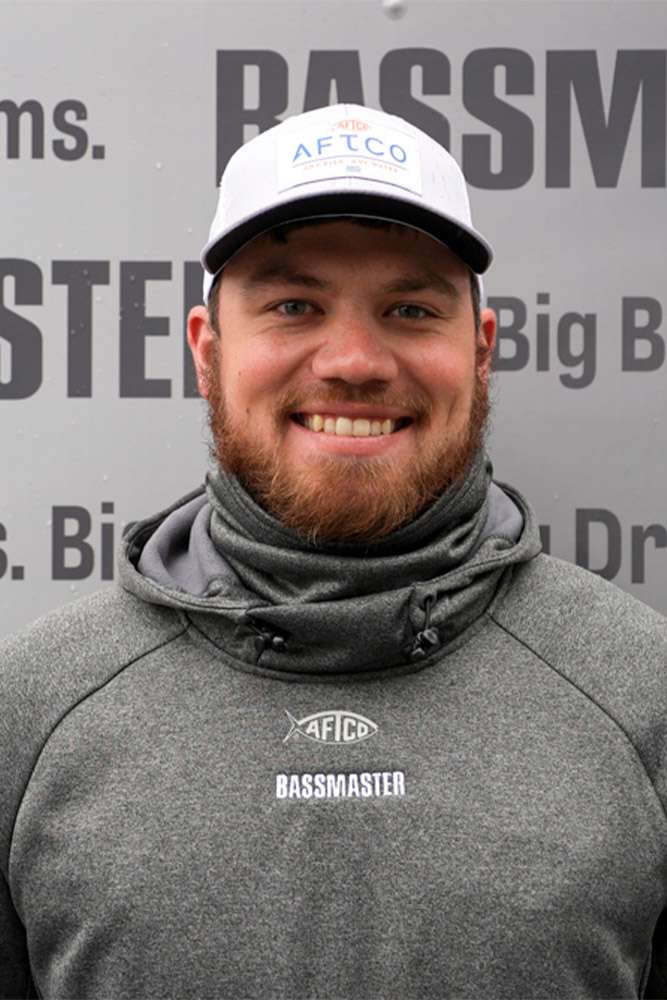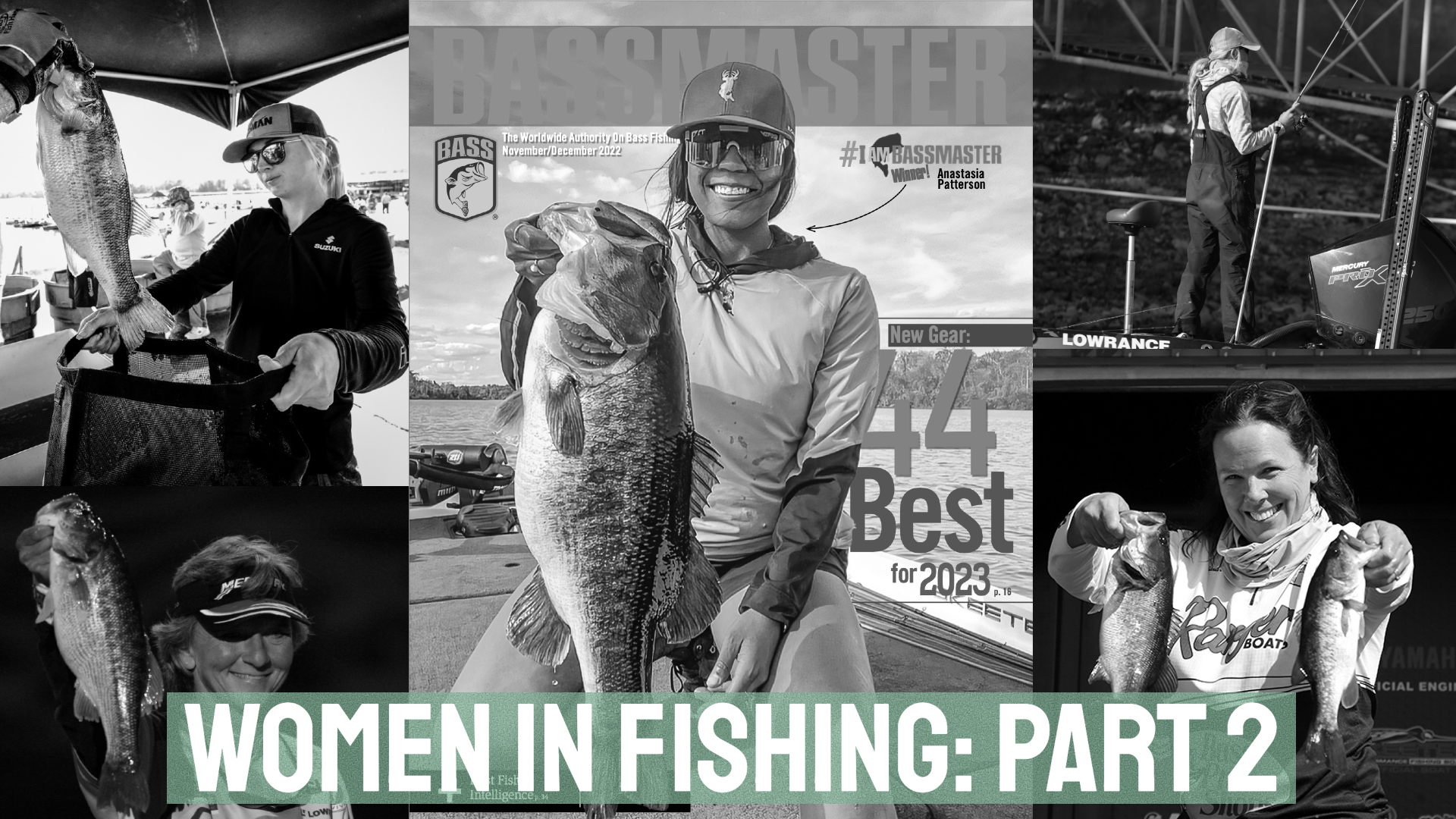
Life on the road can be extremely lonely for women who are trying to make it in the tournament world.
As the male anglers cut up and enjoyed a beverage as they prepared equipment for the next day in the hotel parking lot, Christie Bradley would drag all of her stuff into her hotel room and re-tie by herself.
Women in fishing: Part 1 | Part 2 | Part 3
“I learned very quickly as a professional female angler, driving to these tournaments and competing by myself without my husband being there, I had to put my head down when I got to the hotel and go into the hotel and do my prep because I could quickly be misinterpreted as flirting with the guys who were out there,” Bradley said. “It’s lonely, especially when you suck. That ride of shame home can be really tough when you don’t have someone you can call and ask, ‘What the hell did you do? What happened to you?’
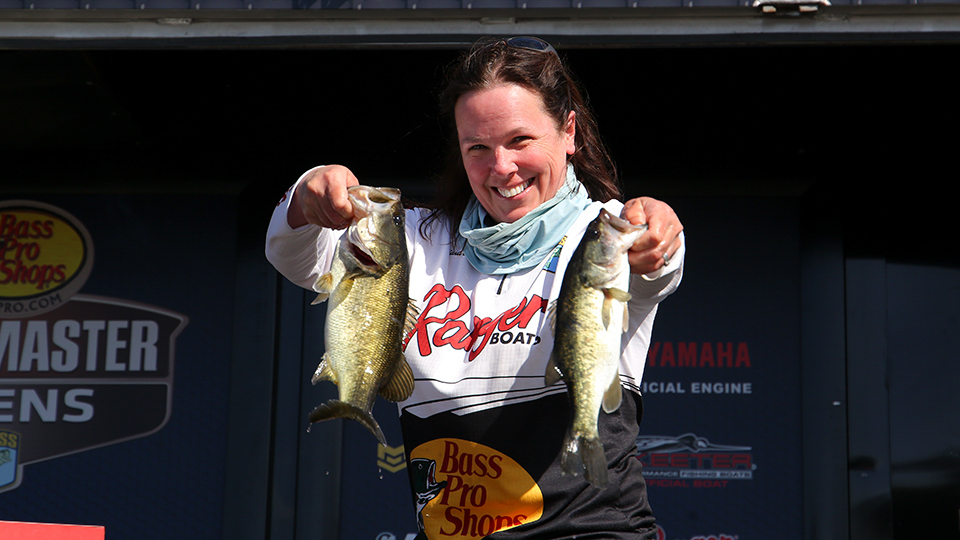
“So, when Trait Zaldain and I were fishing together, we got to be tight really quick because we could have those conversations.”
Not only do women miss out on the opportunity to connect with fellow competitors a lot of times, there is also the financial burden of having to stay by yourself that becomes a drawback.
There is a particular moment that sticks out in Briana Tucker’s mind that fuels her fire for success.
“I asked how one of the female anglers did in the Opens and (this guy) said, ‘Oh you know how you find the female’s results? All you have to do is start at the bottom.’ Ever since I heard that, it has fueled this in me,” Tucker said. “It burned me up that that is how people think. There is a standard issue but sooner or later that is going to change.”
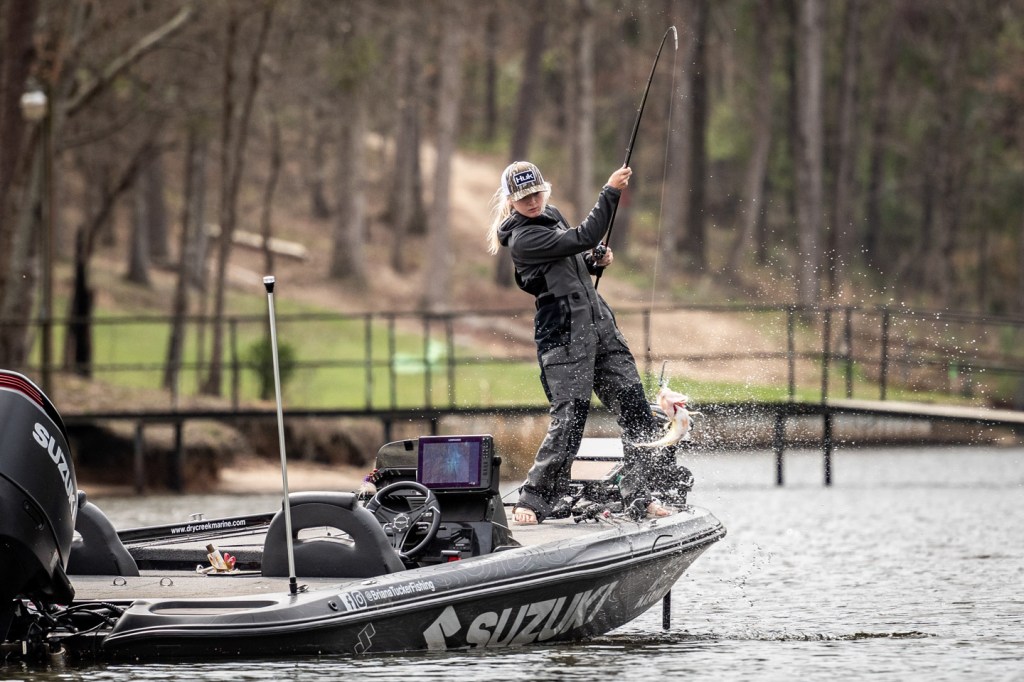
Because so many men are competing in tournaments, naturally when anglers don’t catch them to the standard of the field, it’s a normal occurrence. Put a female angler in that situation, however, and they are dismissed as not being good enough to compete with their male counterparts.
“Everyone is watching what you do,” Kristine Fischer said. “Trait (Zaldain) knows it. If one of us zeroes, of course she did. It is an extra amount of pressure. It kind of sucks.”
When a woman finds success, however, the reaction can be much more visceral and more damaging.
By the time Fischer reached the top levels of the kayak fishing world, she was calloused to the world of being a female in a male dominated field. Her first real job was in the outdoors section of a sporting goods store.
“When I got into the fishing industry, I had already had two jobs where I was the only female and I had been exposed to it and heard everything and I learned how to shoulder it,” she said. “Then I got into fishing and I felt like I had a good skin getting into it to where I can handle my own.”
At 25, after fishing a couple of local trail events and qualifying for several national events, she decided to make the jump to full-time national competition. In 10 years, she has become one of the most recognizable female tournament anglers in the sport.
When she started, she didn’t want to draw any attention to the fact she was a woman. So much so, she would try to hide her ponytail when she arrived to fish events.
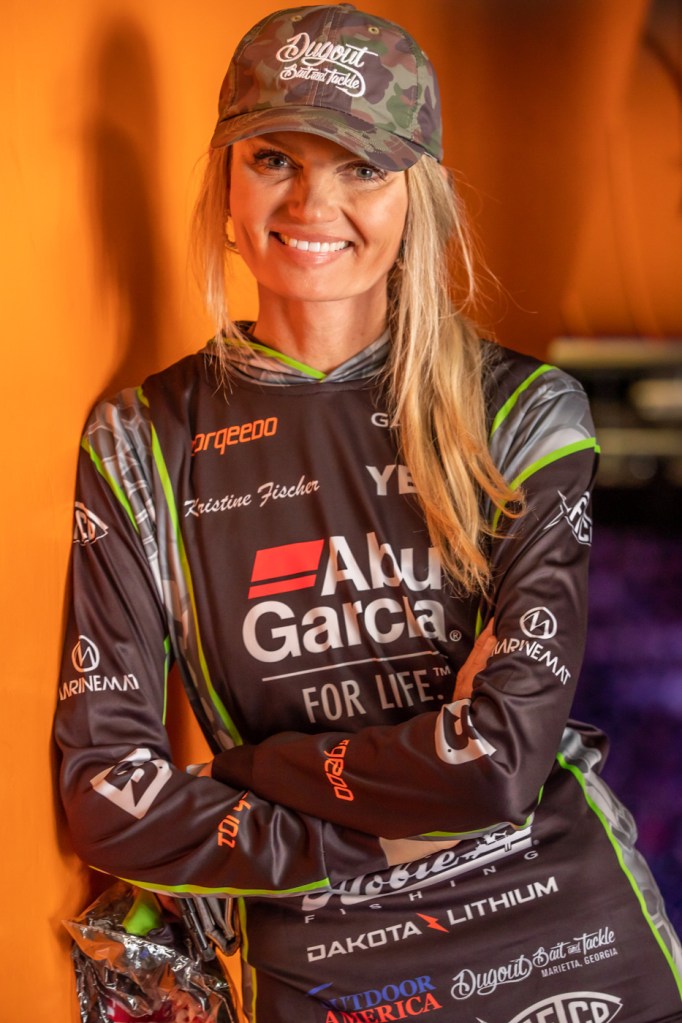
“I despised having any type of extra accreditation because of me being a female or having any extra attention on me,” Fischer said.
Her first big win came at a Hobie Bass Open Series event in 2019 on Kentucky Lake. At an event on St. Clair about a month later, Fischer led after the first day. As she scrolled through her Instagram that night, she was appalled to see a comment from a man who accused her of cheating to win at Kentucky Lake.
The next day, Fischer said she went out on the water and sat in her area for five hours without making a cast, scared of what might follow if she were to win again so soon.
“I called my boyfriend at the time and was like, ‘I can’t fish because if I win again, what are they going to say then? I don’t even want to do well.’ I was scared to be successful again,” Fischer said. “If I win two tournaments in a month, what is everyone going to say? I was bawling my eyes out and after my boyfriend talked some sense into me, I finished second.
“But that was after having one of the worst mornings and days ever. I was sick to my stomach. I was scared to be successful.”
Fischer said she has since been able to brush off the false accusations, which happen after every event essentially. But for the girls in the youth ranks, these types of accusations can derail dreams.
One mom in particular reached out to Fischer recently, detailing what her daughters have struggled with during their high school experience and thanking her for being a role model.

“She said one of her daughters was looking to fish in college,” Fischer recalled. “Her daughter was saying, ‘Mom, every time we get back to weigh-in, the boys all tell me dad caught our fish for us and we didn’t do it on our own, which isn’t true. They make up rumors.’ She said her daughter wants to quit so bad, but she said, ‘every time I see one of (Fischer’s) videos, it tells me if she can do it, I can. I need to keep pushing.’ She is going to go on and fish in college.
“It broke my heart,” Fischer continued. “I have dealt with that all my life, but now these kids in high school are being told from the get-go they can’t do something in fishing and they haven’t even had a chance to develop or thicken their skin up a little, no wonder they aren’t being encouraged to continue on.”
While she notched four Top 10s in the Women’s Bassmaster Tour, Bradley’s career-defining moment came in 2013, when she finished fourth at a Bassmaster Open on Douglas Lake. Not only did it come at a career crossroads, it was the highest finish from any female angler in Bassmaster competition.
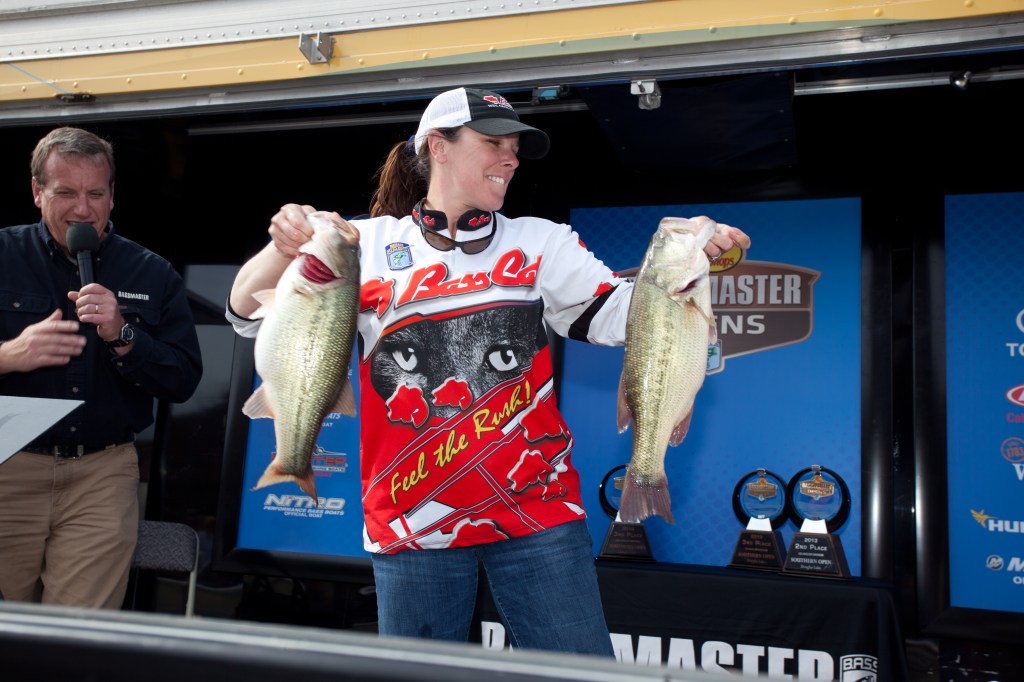
After what she describes as a terrible practice trying to find a groove in the middle of the Alabama rig craze, Bradley made the final-day cut and occupied the hot seat for much of that weigh-in.
As then Bassmaster Elite Series pro Chris Lane exited the stage without overtaking her position, he walked over and congratulated Bradley with a handshake.
“That was such a significant moment for me because I felt like I finally had the respect of my peers. I felt in that moment, sitting there before weigh-in, that I could win one of these,” Bradley said. “I felt nothing but respect from the vast majority of the male competitors. They were respectful. But in the beginning, and this is my perception, I felt like guys didn’t know how to take me and kept me at arm’s length.”
Bradley continued, “It was like, ‘Not sure how to take you, so I’m not going to acknowledge you are there.’ I understood why, and it took a couple years and some of them noticing I was putting my time in and not trying to flirt with anyone. I was there for the same reason they were there. I think that helped and I think I gained respect from some of them. To see someone like Chris Lane being willing to shake my hand, it solidified it for me.”
Still, being accepted by their male counterparts is a big part of the equation for women who are trying to get into the tournament world. Now, as a head coach for the Emmanuel College fishing team in Georgia, Pam Martin-Wells has spoken to several girls on her team and on the recruiting trail who have expressed concerns about being welcomed to the team or into the sport.
She has dealt with that problem herself for many years. Before she began fishing professionally, Martin-Wells would fish local events and team tournaments and the men competing against her would often become jealous if she performed better. Even friends of hers in team events would start to get frustrated if she began catching more than they did.
“Once I got into it, I want to say it didn’t really bother me, but it does because I want everyone to like me,” she said. “I didn’t dwell on it, though, because my ultimate competition was not between me and another angler, it was between me and the fish.”
For Helen Sevier Pioneer Scholarship winner Dixie Morris, being accepted among the boys in the tournaments where she competes in her home state of Alabama was a constant struggle. But as she began to show her talents and catch quality bags, eventually she began to earn the respect of her peers.
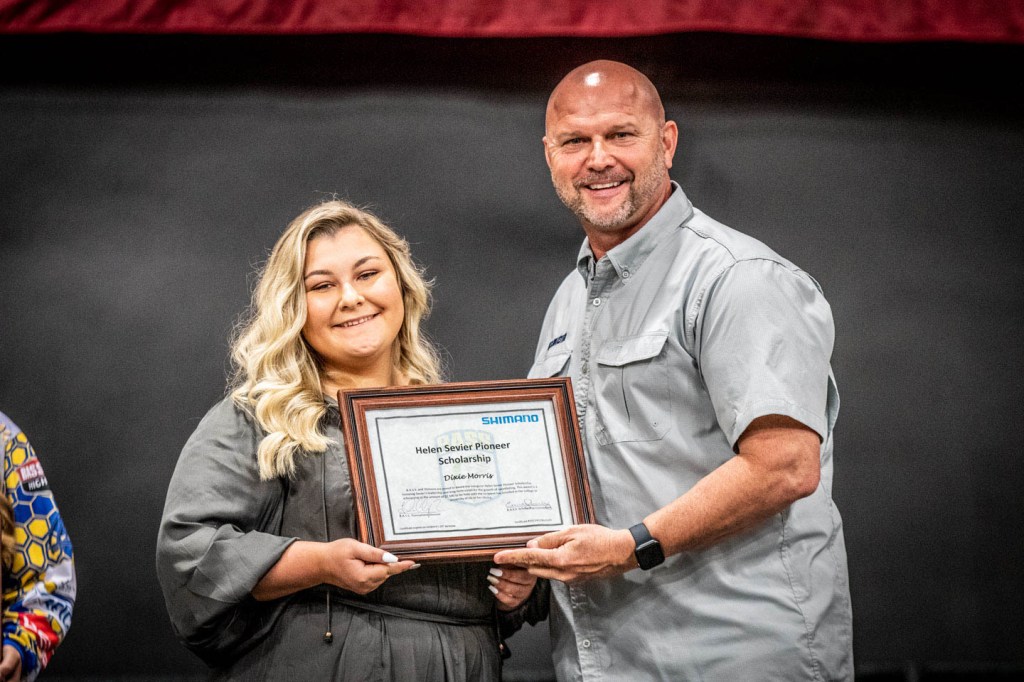
“As a girl fishing, a bunch of people have looked down on me,” she said. “It was really hard at first. At the weigh-ins, you are one of the only girls there and people think because you are a girl you don’t know what you are doing.”
In Tucker’s first-ever Open event, she felt immense pressure from competing against over 200 of the best male anglers in the country. She also had to prepare herself for a male co-angler who may not like that he was fishing with a woman.
“You put your boat in the water and you are behind the steering wheel and everyone else around you is a man. Everyone is looking at you like, ‘Why is the co-angler driving the boat?’ You definitely get a lot of stares for sure and I imagine that will get to a lot of people,” Tucker said. “I was so nervous because I was so worried about my co-angler and that he was going to think I didn’t know what I was doing because I was a woman. Or he was going to think it was horrible because he drew a woman and not one of the guys. That was an insecurity for me starting out.”
Once Bradley learns who her co-angler will be, her first comment to that angler sounds something like, “Sorry you drew the girl, ha-ha-ha.”
“And then the next thing we talk about is how we pee,” Bradley continued. “One thing I love is when we go to take off and they see how I drive the boat and see I am not just there to put makeup on or whatever, then almost invariably they will say something like, ‘I didn’t know what to expect,’ or ‘You can really drive this boat.’ Almost every co-angler I have had has been a pleasure to be with for the day.”
Fischer has faced the same types of skepticism. Packing up at a ramp during practice for an event, she said an elderly man once commented, “I can’t believe they let women fish these tournaments.”
The lack of acceptance extends off the water as well, particularly when women try to buy boats and tackle.
“For a lot of women, the very common theme is, they will walk into a tackle shop or go buy a boat and they will get questions like, ‘Where is your boyfriend? Where is your husband? Who are you buying the boat for?’ Which is really discouraging for them,” Fischer said. “I hate seeing it. I wish more women could shrug that stuff off. It is something I deal with now. It plays a role because you are getting told over and over again you can’t or you are being doubted and constantly having to prove yourself. Women constantly complain about those types of comments and assumptions from people in this industry.”
Generally speaking, many of the women in this story have had mostly positive interactions with male anglers and Fischer believes the general attitude towards female anglers is changing for the better.
Martin-Wells agrees.
“Tournament organizations aren’t afraid to write articles with women and not afraid to show her at weigh-in or have her in a clip on TV,” she said. “I have been very fortunate in that aspect too. I have been on the cover of Bassmaster when I did ‘Day on the Lake.’ They aren’t afraid to put a female out there. The industry itself isn’t afraid to show a woman driving a boat. There have been big improvements.”
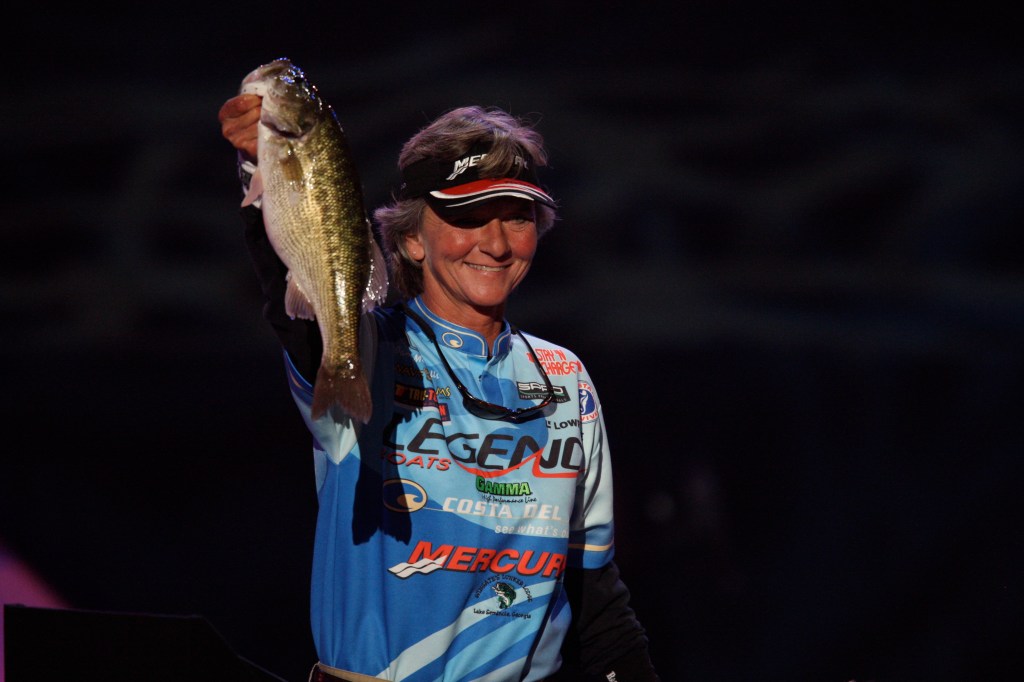
After nearly every weigh-in, after a good or subpar performance, Bradley said she will have women come up to her and say they are inspired. That, in turn, has inspired her to revamp her YouTube channel to cover more of the basics and help encourage some of those women to step off the sideline and get in the game.
“Almost at every weigh-in, there are one or two women who come up to me and say, ‘I think it is so cool what you are doing. I’d be so nervous and I admire that you are doing it.’ And I try to tell them to just do it,” she said. “That goes back to the culture and the confidence. I think there are a lot of women who want to do it and don’t know how to get started.”

